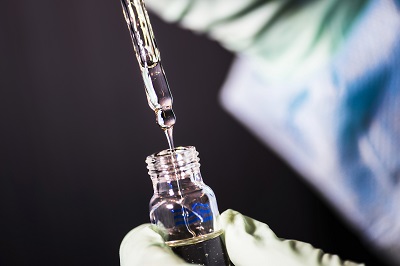What are the processes, required materials, and considerations for RZN certification of Class 2b medical devices?
Release time:2024-08-22 13:48:18
The author:
source:
Classification: Class 2b devices are considered medium-risk medical devices in Russia. These devices typically have a higher degree of risk compared to Class 1 and 2a devices and require more rigorous evaluation.
The RZN (Russian Ministry of Health) certification process for Class 2b medical devices involves several steps and requires a thorough understanding of the regulatory environment in Russia. Below is a comprehensive guide on the processes, required materials, and key considerations for obtaining RZN certification for Class 2b medical devices.
1. Understanding Class 2b Medical Devices
- Classification: Class 2b devices are considered medium-risk medical devices in Russia. These devices typically have a higher degree of risk compared to Class 1 and 2a devices and require more rigorous evaluation.
2. Process for RZN Certification
Step 1: Preliminary Preparation
- Determine Classification: Verify that your device is correctly classified as Class 2b under Russian regulations. Misclassification can lead to delays or rejection.
- Local Representation: Engage a local Authorized Representative (AR) in Russia who will act on your behalf throughout the certification process. This is often required for foreign manufacturers.
Step 2: Prepare Documentation
You will need to compile a comprehensive set of documents to support your application:
Technical File
- Device Description: Detailed information about the device, including its design, materials, and components.
- Design and Manufacturing Details: Information on how the device is manufactured, including production processes, quality control measures, and raw materials used.
- Risk Analysis: Documentation of a risk management process, identifying potential hazards and how they are mitigated.
- Performance Testing: Results from preclinical and laboratory tests demonstrating that the device meets its intended performance specifications.
Clinical Data
- Clinical Evaluation Report: A summary of clinical data, including studies or trials that demonstrate the device’s safety and effectiveness.
- Post-Market Surveillance Data: If the device is already on the market elsewhere, provide any relevant post-market surveillance data, including reports on adverse events.
Quality Management System (QMS) Documentation
- ISO 13485 Certification: Proof of compliance with ISO 13485 or an equivalent standard, which indicates that the manufacturer follows internationally recognized quality management practices.
- QMS Procedures and Records: Detailed documentation of the quality management processes, including SOPs (Standard Operating Procedures), quality control records, and audit reports.
Labeling and Instructions for Use
- Russian Language: Ensure that all labeling and instructions are translated into Russian. This includes the device’s name, intended use, manufacturer’s information, warnings, and instructions for use.
- Compliance with Local Standards: Labels and instructions must comply with Russian regulatory requirements, including proper identification and safety information.
Declaration of Conformity
- International Compliance: If the device is certified in other jurisdictions (e.g., CE marking, FDA approval), include a declaration of conformity and relevant certificates to demonstrate compliance with international standards.
Step 3: Submission of Application
- Application Form: Complete the application form provided by Roszdravnadzor. This form must be filled out in Russian and submitted along with the required documentation.
- Submission Channels: Applications can be submitted electronically through Roszdravnadzor’s online portal or by mail. Verify the latest submission methods with Roszdravnadzor or your local representative.
- Application Fees: Pay the required application fees, which vary depending on the device type and the complexity of the review.
Step 4: Technical Evaluation and Inspection
- Document Review: Roszdravnadzor will review the submitted documents to ensure compliance with Russian regulations. This includes an assessment of the technical file, clinical data, and QMS documentation.
- Request for Additional Information: Be prepared to respond promptly if Roszdravnadzor requests additional information or clarification during the review process.
- Factory Inspection: For Class 2b devices, Roszdravnadzor may require an on-site inspection of the manufacturing facility to verify compliance with quality and safety standards. Ensure that the facility is prepared for an audit, with all processes and records in order.
Step 5: Certification Decision
- Certification Issuance: If the evaluation is successful, Roszdravnadzor will issue the RZN certificate, allowing the device to be marketed and sold in Russia.
- Time Frame: The certification process can take several months, depending on the complexity of the device and the thoroughness of the application.
3. Required Materials
- Technical File: Complete and detailed documentation of the device’s design, manufacturing process, and performance.
- Clinical Data: Comprehensive clinical evaluation reports and any post-market surveillance data.
- QMS Documentation: Proof of compliance with ISO 13485, including quality management procedures and audit records.
- Labeling and Instructions: Russian-language labels and instructions for use that comply with local regulations.
- Declaration of Conformity: Documentation proving compliance with international standards, if applicable.
4. Key Considerations
- Language Requirements: All documentation must be in Russian or accompanied by a certified translation. This includes labels, instructions, and technical documentation.
- Local Representation: A local Authorized Representative is often required to facilitate communication with Roszdravnadzor and to ensure compliance with Russian regulations.
- Regulatory Changes: Stay informed about any changes in Russian medical device regulations that may affect the certification process or post-market requirements.
- Post-Certification Obligations: After obtaining certification, maintain ongoing compliance with Russian regulations, including post-market surveillance and reporting obligations. Be aware of the certification’s validity period and the process for renewal.
5. Post-Certification
- Ongoing Compliance: Ensure that your device remains compliant with all applicable regulations throughout its market life in Russia. This includes monitoring for adverse events and maintaining up-to-date documentation.
- Certificate Renewal: RZN certificates typically have a validity period, after which they must be renewed. Plan for the renewal process well in advance to avoid disruptions in the market.

Contact Us:
Whatsapp or Wechat:+86 15816864648;email address:hito.lin@grzan.cn
.png)
.jpg)
.png)

.png)